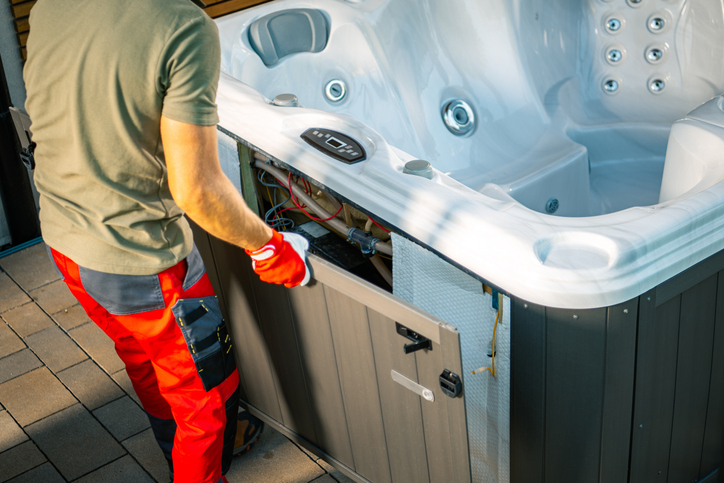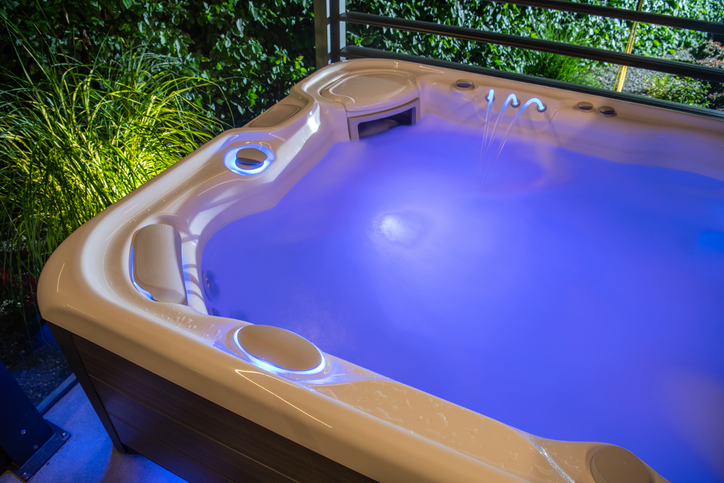In today’s world, where stress often feels like an inevitable companion, finding effective ways to unwind is essential. Hot tubs provide more than just a relaxing experience—they offer scientifically proven benefits that deeply impact both the body and the mind. But what exactly happens when you step into a hot tub, and why do you feel so relaxed afterward?
The Science of Warmth: A Relaxing Effect on the Body
Hot tubs work their magic primarily through the combination of heat and buoyancy. When you immerse yourself in warm water, typically between 100°F and 104°F (37°C–40°C), several physiological responses are triggered that promote relaxation.
Thermal Regulation
As your body adjusts to the heat, blood vessels dilate—a process known as vasodilation. This allows blood to flow more easily through the body, helping to deliver oxygen and nutrients to muscles, tissues, and joints. This increased circulation not only helps reduce muscle tension but also speeds up the removal of metabolic waste, which contributes to a sense of relief and relaxation.
Soothing Muscles and Joints
The warm water in the hot tub also acts as a natural muscle relaxant. Heat stimulates sensory receptors in the skin, which can reduce pain perception. This is why hot tubs are often recommended for people suffering from muscle soreness, arthritis, and other chronic pain conditions. The buoyancy of the water helps to take the pressure off weight-bearing joints, allowing for a gentle stretch that alleviates discomfort and promotes flexibility.
The Role of Hydrotherapy: Stress Reduction and Mental Clarity
Hydrotherapy—using water for therapeutic purposes—has long been recognized as an effective way to reduce stress and promote relaxation. Hot tubs specifically create an environment where the combination of warm water, jets, and buoyancy works synergistically to provide relief.
Endorphin Release
Immersion in hot water also triggers the release of endorphins, the body’s natural “feel-good” chemicals. These neurotransmitters not only reduce the perception of pain but also promote an overall sense of well-being and relaxation. The buoyant feeling of weightlessness in the water can amplify this effect, making you feel lighter both physically and mentally.
Reduction in Cortisol
Stress is often accompanied by an overproduction of cortisol, the body’s primary stress hormone. Regular use of hot tubs has been shown to reduce cortisol levels in the body. When cortisol decreases, the body can shift from a “fight-or-flight” mode into a more relaxed, restorative state. The calming effect on the nervous system allows the body to recover from the daily stressors of life and promotes a healthier, more balanced emotional state.
Buoyancy: The Hidden Key to Relaxation
One of the most remarkable features of hot tubs is their ability to provide buoyancy. When you enter the water, your body becomes less burdened by gravity, which reduces the strain on your muscles, joints, and bones. The sensation of weightlessness enhances relaxation and allows the body to enter a more restful state.
Hydrostatic Pressure
The buoyancy of the water also creates a mild hydrostatic pressure, which helps to improve circulation. This pressure gently compresses the body, encouraging the movement of blood and lymphatic fluid. This enhanced circulation helps to reduce swelling, alleviate soreness, and remove toxins more efficiently from the body.
The Power of Relaxation: Improving Sleep and Mental Health
The benefits of hot tub use extend beyond immediate relaxation. Regular hot tub sessions can positively affect both sleep quality and mental health, thanks to the calming effects on the autonomic nervous system.
Improved Sleep Quality
As your body cools down after leaving the hot tub, it signals to the brain that it is time to rest, helping to initiate the natural sleep cycle. This process mimics the body’s natural circadian rhythm, promoting deeper, more restful sleep. Studies have shown that people who use hot tubs before bed often experience better sleep quality, falling asleep faster and staying asleep longer.
Mental Clarity and Stress Relief
Immersion in hot water provides a quiet, uninterrupted space for reflection, allowing your mind to escape from the constant bombardment of external stressors. This mental break helps to clear the fog, giving you the opportunity to unwind, focus on the present, and reconnect with your thoughts. The act of relaxing in a hot tub can bring an increased sense of mindfulness and clarity, helping to shift the mind from the hectic pace of daily life to a peaceful, more centered state.
Conclusion: The Science Behind True Relaxation
Hot tubs provide more than just a luxurious escape—they are an effective, science-backed tool for reducing stress, improving circulation, and promoting overall wellness. By harnessing the power of heat, buoyancy, and hydrotherapy, hot tubs relax muscles, release tension, and lower stress hormones, all while improving sleep and mental health. The next time you step into a hot tub, know that you are engaging in a time-tested practice backed by science to support your physical and mental well-being.



